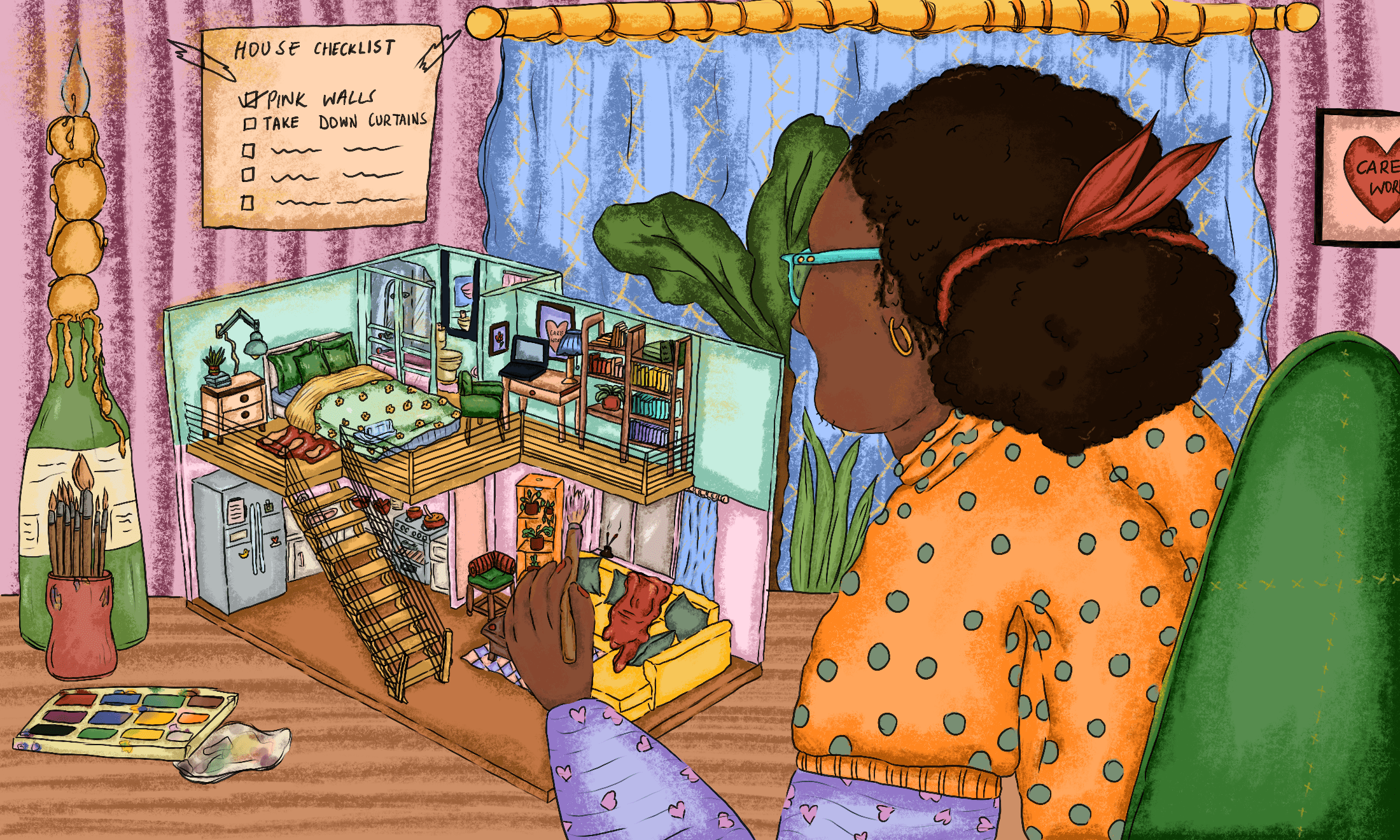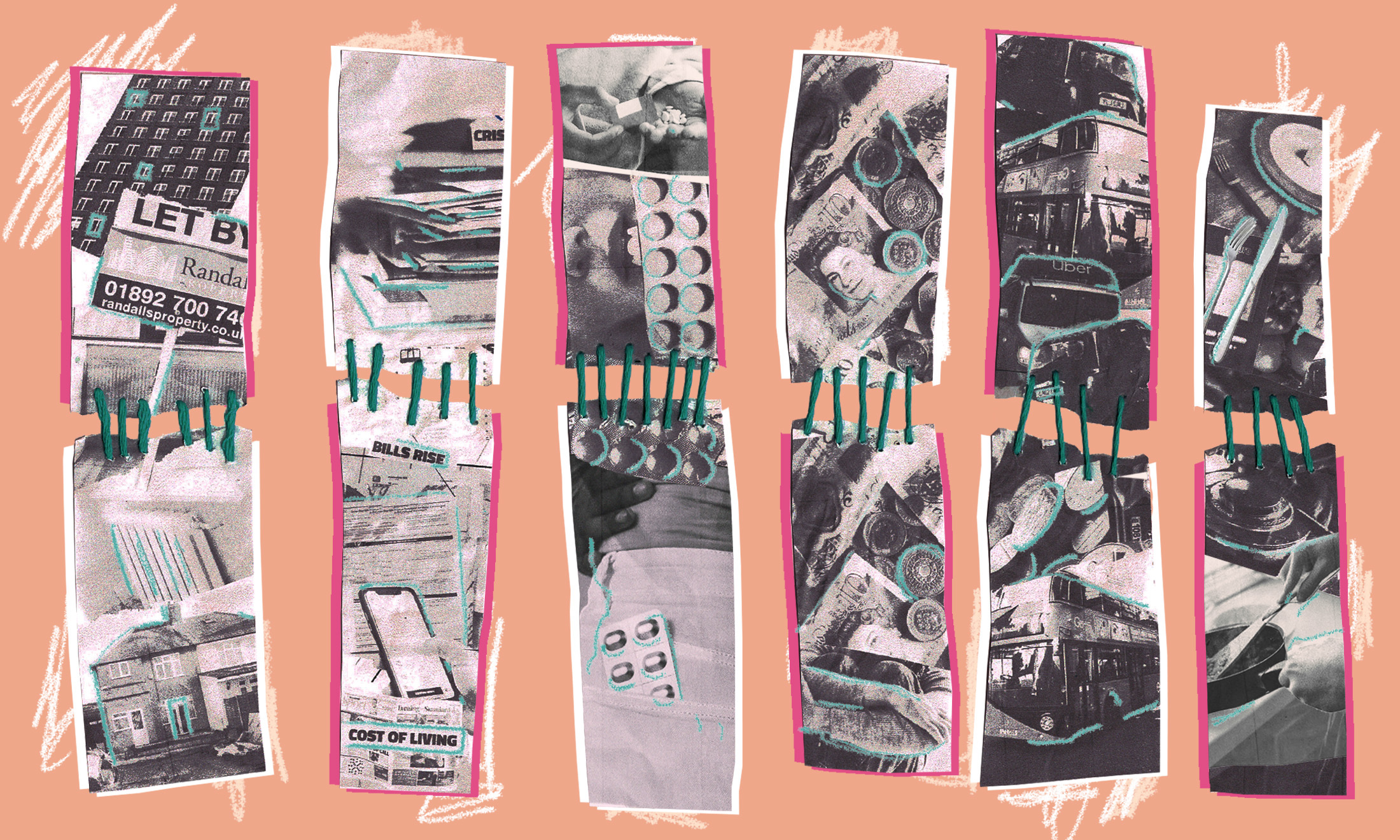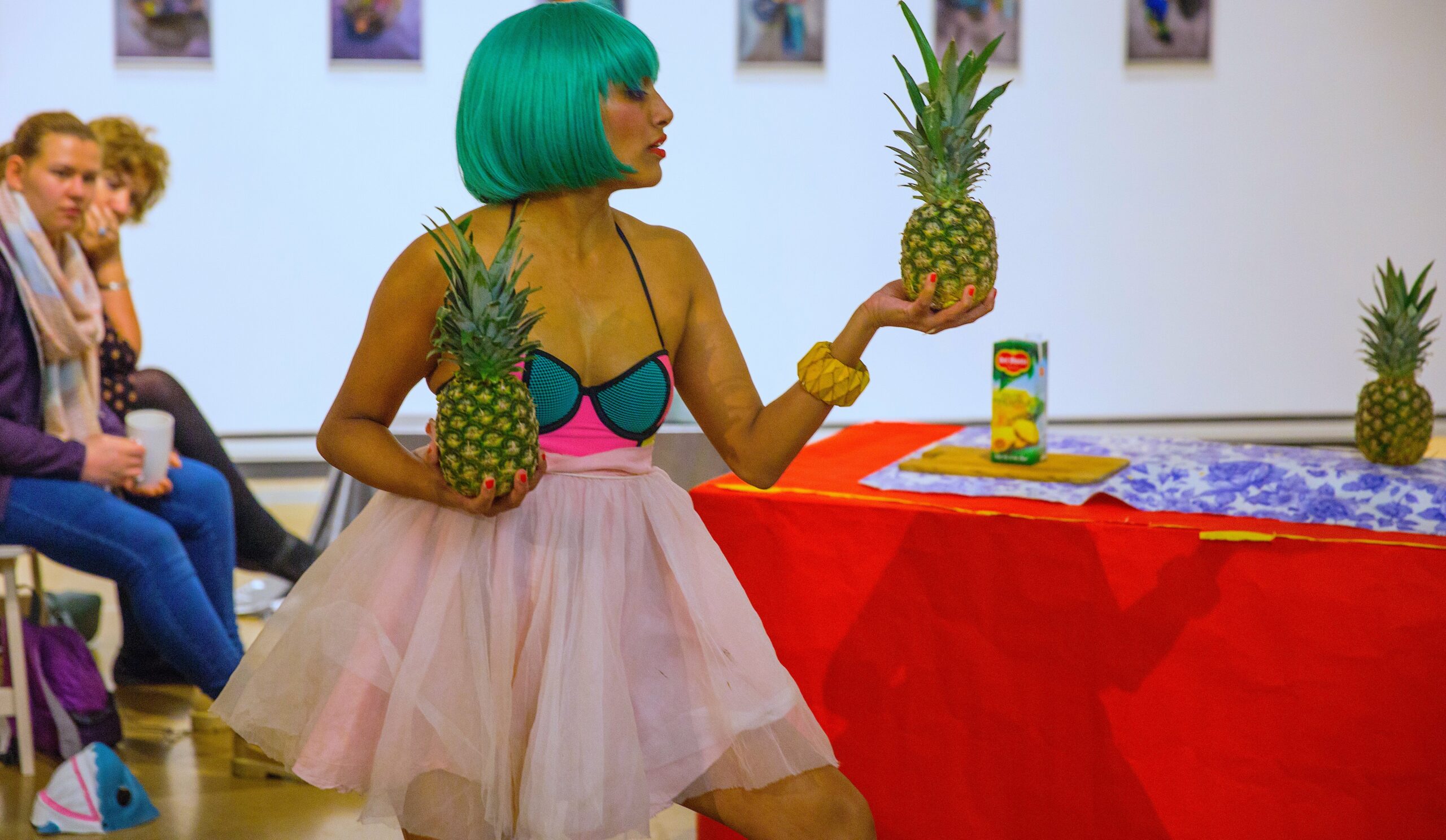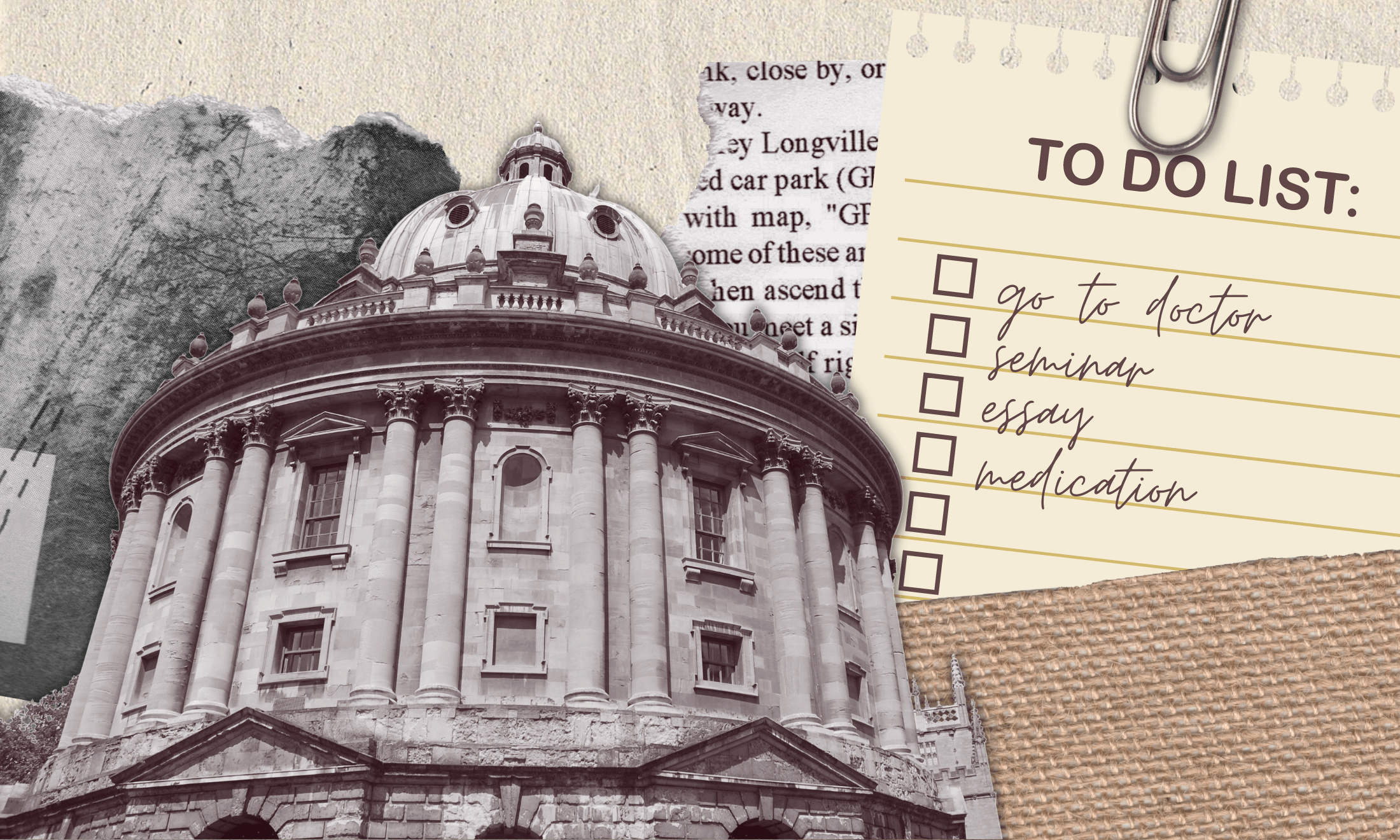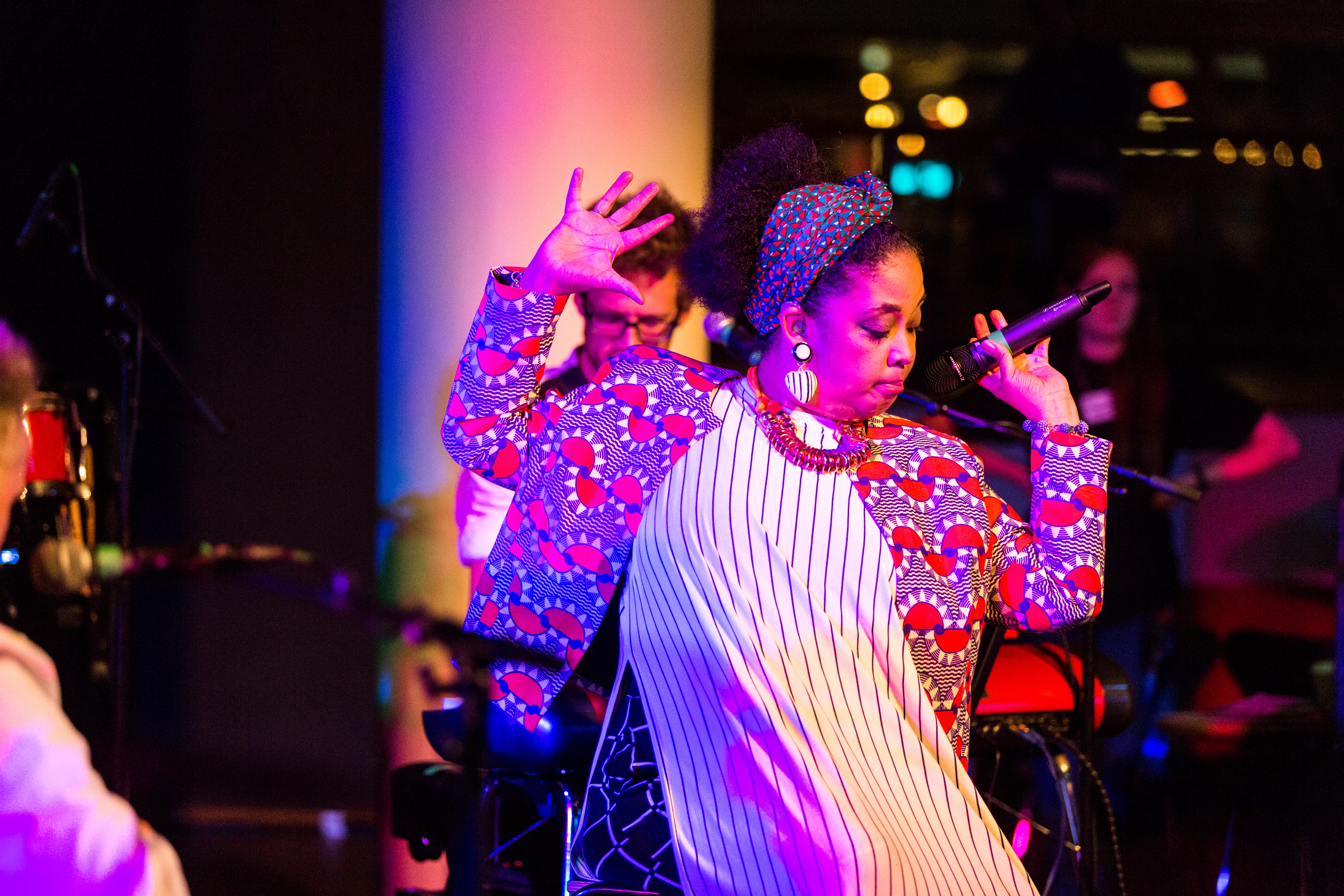
Photography by Tim Mitchell
Growing up with a learning disability, I wasn’t expected to walk or talk, let alone become a musician
When she was born, singer-songwriter Lizzie Emeh's parents were told she wouldn't walk, talk or sit up. Here, she illustrates her uplifting musical journey – from growing up with the vibrations of Notting Hill Carnival, to developing her musical abilities with her nan in Ireland.
Lizzie Emeh
18 Apr 2020
I’d like to start where it all began. It began with me hearing music in a totally different way. I was born and bred in Notting Hill, west London, with the Notting Hill Carnival right on my doorstep. My childhood was spent surrounded by music, but my hearing wasn’t great (in fact, in 2011 I was diagnosed as deaf). So I felt the music from the carnival; I heard the vibration and the beat, and I’d sing and dance in the street.
Being brought up in an Irish-Nigerian household, there was always a diverse range of music being played. We had folk, reggae and Afrobeat, but also Duran Duran and the Dubliners. My late mum taught me about the blues. She introduced me to soul – from Aretha Franklin to Otis Redding to Sam Cooke. Mum would play old Motown records – she had so much vinyl. Did you know vinyl sounds much more clear than music recorded on anything else? More clear than cassettes or CDs. I used to hear it crystal clear when it was played loud. There’s something about touching the vinyl – the warmth of vinyl and the sound – and then you put on the needle ever so gently. Just getting the record out of the sleeve is a special thing.
I used to watch the singers my parents liked on video and be captivated by them all. I loved the way James Brown or Otis Redding controlled the stage. My late dad thought I watched too many music videos so he used to try and distract me, but Mum would say, “Leave her.” My dad didn’t realise that for me, listening to music and watching people perform was an education (he came to realise this, but that’s when he was much older).
“When I was born, doctors told my parents that I wouldn’t ever be able to walk, talk or sit up. I knew I was different from the word go”
I have two brothers and a sister, and I’m the youngest. When I was born, doctors told my parents that I wouldn’t ever be able to walk, talk or sit up. I knew I was different from the word go. My mum dismissed it; she was like, “You’re no different to your sister or your brothers, you’re just special.’ I remember my mum teaching me to speak. She would hold a ball and say, “B-a-l-l,” or point to a table and say, “T-a-b-l-e.” I remember thinking, “You’re totally cuckoo! Of course I know what they are!”
My dad would say, “She’ll talk in her own time.” And that’s what I did. My very first word when I was about four was my brother’s name, Christopher. I called to him from downstairs, and he flew down the stairs, yelling, “She said my name, Mum! Mum!”
One day, when I was seven or eight, I was in the bath and my mum was singing a 1980s a cappella song, ‘Only You’ by the Flying Pickets. I joined in. Mum turned round and said, “I’m going to do something with you, with this – I’m gonna take you to Ireland, to your nan in Dublin.” My nan was an amateur jazz and blues singer, so Mum took me home to Ireland and said to my nan, “She’s got this wicked gift, what shall I do with it?” Nan said, “Leave her with me for a year. I will teach her everything she needs to know.”
My nan taught me about music and she was the most inspirational person in my life. She made me want to be a singer. She went through this A to Z of music with me. She used to sing different songs in different ways, Irish music as well as folk and jazz, like Ella Fitzgerald. She would sing, oh man, she would sing! Nan sang with me all the time, she gave me the passion. She would get me to harmonise with her. No one else in my family sings – it’s only me who has that gift. It’s definitely come straight from my nan – she was so soulful. It missed a generation because my mum couldn’t sing a blind note, but one of my brothers and my sister are musical too. My sister played the violin at school and my brother used to like singing.
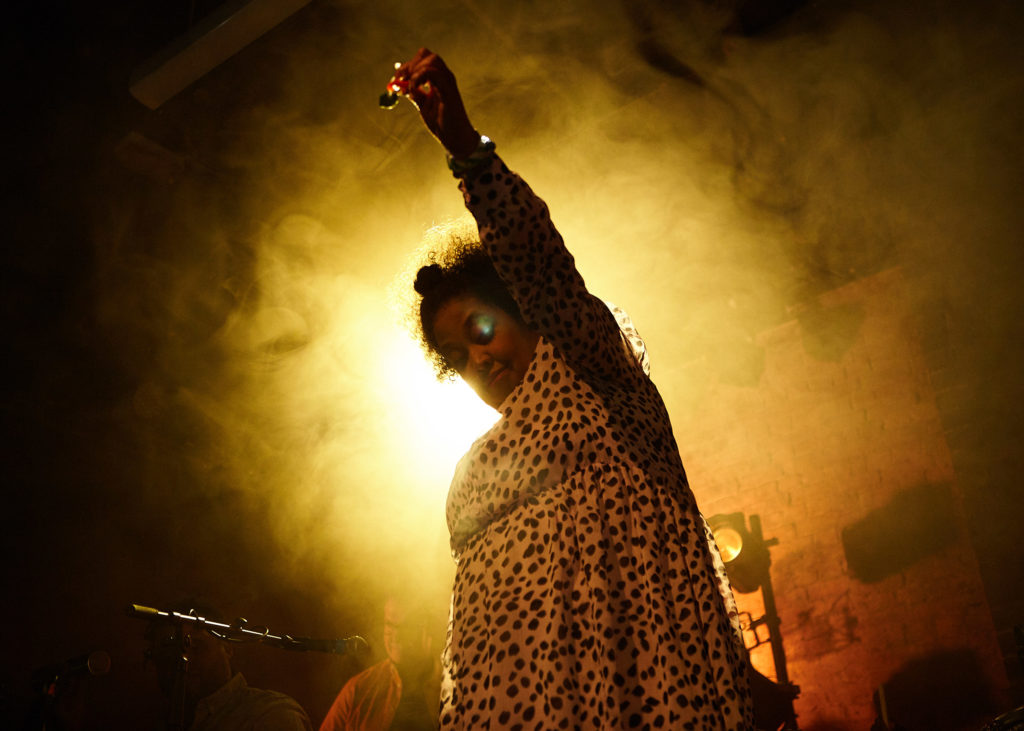
If Nan hadn’t had the wagonload of kids that she did (she had 23 kids!), she would have sung professionally. She was offered a record deal but she had her kids to look after. Instead, she sang in clubs, at parties, funerals; she was singing all of the time. She was all about the razzmatazz. When the whole family got together at my nan’s on a Saturday night, it was showtime. “It’s your turn – what can you do?” she would ask us kids. There was singing, dancing and poetry. My nan just opened up the floor to us. At Nan’s, it was escapism and freedom. I really felt like I could express myself.
When I moved back home to London from Ireland, my nan spoke to my mum about how I loved the music. “She needs to hear it full blast,” she said. “Don’t put it on low for Liz.” I remember my nan turning around to me and saying, “I’m only putting you on the starting blocks, because I know what you’re going to achieve.”
I have had difficult times. When I was around nine or ten, I would play outside with some other kids who lived nearby. My mum kept saying, “Why do you keep on calling these your mates? They’re not your friends, Liz. They put dog mess into a tissue and wipe it all over you – is that what you call a friend?” I said, “It’s not done on purpose,” because I wanted friends. When my mum went outside and began screaming at them because of what they’d done to me, my dad said, “Come in, you’re making a show of yourself, why are you wasting your time?” Mum said they shouldn’t get away with it, but Dad said her going and shouting her head off was not going to achieve anything. He said she was wasting her breath because they needed an education.
“This voice comes from the back of the bus and says – I don’t know who it was, but it was brilliant – ‘If she’s a retard, you’re the one that needs an education’”
A few years ago, I am walking down the road with my nephew, and this boy he knows comes up and asks, “Why does your aunty walk funny – are her feet on back to front?” The minute he says that, my nephew starts on him, trying to kick him, and I’m screaming at him to stop, and he says, “Aunty Liz, they shouldn’t get away with that.” Later, my mum sits him down and talks to him. She says, “Your Aunty Liz, she is very, very special. Do you know why? Because she has got disabilities and you have got to educate people about that.” He says, “That’s impossible, because people aren’t going to listen.” And she says, “Screaming and shouting ain’t going to make any difference.” So my mum had changed her mind about how to deal with these people over the years.
Another story: I’m on the bus and this young lad turns around and says to his sister, “Now that is what I call a retard.” They both start laughing. But then this voice comes from the back of the bus and says – I don’t know who it was, but it was brilliant – “If she’s a retard, you’re the one that needs an education.” A lot of people need an education about learning disability. I want people to respect us. There are people who say stupid things. Like the time someone said, “The freaks are out on patrol,” when I was out clubbing with some mates.
I agree with my dad on this: it’s not about confrontation, it’s about education. That’s what I’m doing now by just getting out there and singing. My God, that’s making a bigger difference than shouting.
Also, what these people don’t understand is that what they say gives me lyrics for my songs, and then I write about how stupid people are. This shows them up. What I would say to them is, “The more that you say silly stuff to me, the more you are giving me material – so yeah, go on, please say stupid stuff to me because the laugh’s on you.”
This is an edited extract from an essay that appears in Made Possible: Stories of Success by People With Learning Disabilities — In Their Own Words, edited by Saba Salman. Published by Unbound on May 28, £9.99

